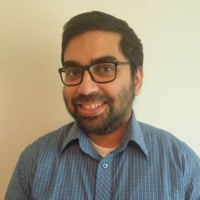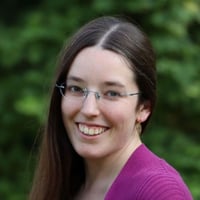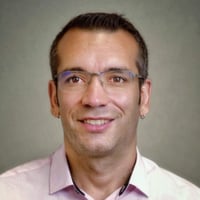You're Invited!
Free Monday Night Classes from the School of Computing and Data Science
Wentworth Faculty from the School of Computing and Data Science are hosting virtual speaker events throughout the fall. Join us and learn about fascinating trends across Applied Computer Science, Applied Mathematics, Cybersecurity Analytics, Data Science, and more.
About The School of Computing and Data Science at Wentworth
Graduate programs from Wentworth's School of Computing and Data Science offer hands-on, career-focused degrees that will teach you the skills you need to succeed in this growing field. You'll learn from experienced faculty, work with real-world data, develop machine-learning models, and have access to all of our university resources, including our embedded AI lab with Nvidia GPUs.
Classes are held in the evening, live and synchronous, so you can work full-time while you earn your degree.

About The School of Computing and Data Science at Wentworth
Graduate programs from Wentworth's School of Computing and Data Science offer hands-on, career-focused degrees that will teach you the skills you need to succeed in this growing field. You'll learn from experienced faculty, work with real-world data, develop machine-learning models, and have access to all of our university resources, including our embedded AI lab with Nvidia GPUs.
Classes are held in the evening, live and synchronous, so you can work full-time while you earn your degree.

9/11/23
7:00 PM EST
Developing Secure Software Applications
In his talk, Dr. Olmsted will investigate the problem of secure software development. To build robust software, the development team must model the misuse of the software with the same rigor as they model the use of the software. Olmsted will review the traditional software development phases and discuss methods for modeling malicious and erroneous behavior. In contrast to many standard industrial approaches, the approach presented focuses on programming and the data flowing through the code. Dr. Olmsted's methodology covers more extensive misuse models than traditional software development processes. The talk will conclude with a presentation of his current work investigating software security guarantees.

Speaker:
Aspen Olmsted, Ph. D.
9/25/23
7:00 PM EST
Internet of Things Conflict Detection with Theorem Prover
Internet of Things (IoT) has become a common paradigm for different domains such as health care, transportation infrastructure, smart homes, smart shopping, and e-commerce. With its interoperable functionality, it is now possible to connect all domains of IoT together to provide comprehensive services to the users. Because numerous IoT devices can connect and communicate at the same time, there can be events that trigger conflicting actions for an actuator or an environmental feature. Any policy violation results in detection of conflicts. We define the safety policies for controller, actions, and triggering events. This presentation discusses some formal method approaches, satisfiable modulo theory, and Prolog theorem proving to ensure safety of controller and actuators' behavior with respect to conflicts.

Speaker:
Abdullah Al Farooq, Ph. D.
10/16/23
7:00 PM EST
Optimizing to Find the Parameters that Govern Nature
Many complex systems in nature, science, and society can be modeled as networks of connected individuals that follow similar rules. In some cases, these networks exhibit emergent behaviors such as synchronization and resonance: fireflies flash simultaneously, an audience applauds in unison, pacemaker cells in the heart or neurons in the brain synchronize (which can have useful or detrimental effects on the body).Some studies have focused on defining mathematical models for these agents and the networks between them, and then determining the behavior of those models under certain conditions. However, we commonly encounter the "inverse problem" – that we can observe the behavior of a system, but not directly determine the intrinsic properties of the agents or the network connections between them. In this talk, we will explore inverse problems as an optimization challenge: to minimize the error in our predictions of future behavior. We will discuss how we can use observational data from a system to adjust the equations of its dynamics, resulting in a model that is both useful for prediction and interpretable in context. The talk will also include some ongoing work applying this methodology to a biological problem.

Speaker:
Lauren Melfi, Ph.D.
10/30/23
7:00 PM EST
Adversarial Architecture: Where Art and AI Converges
Step into a world where art meets artificial intelligence in our talk on Adversarial Architecture. Journey with us as we fuse cutting-edge technology with the tangible world, crafting a new design frontier. Imagine embedding hidden layers of information onto everyday objects like bananas, cups and tables, forging a realm of unique identification, seamless accessibility, and even counter-surveillance possibilities. Guided by creativity, we meticulously transform the ordinary into the extraordinary—unraveling objects, infusing them with imperceptible data, and witnessing the dynamic interplay between physical and virtual realms. Through our iterative process, we bridge artistry and innovation, cultivating an unprecedented partnership between the mundane and the synthetic. Join us to explore how this visionary integration propels us towards limitless horizons, engaging both your curiosity and imagination. The future is here, and it's waiting for you to take a glimpse.

Speaker:
Memo Ergezer, Ph.D.